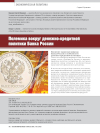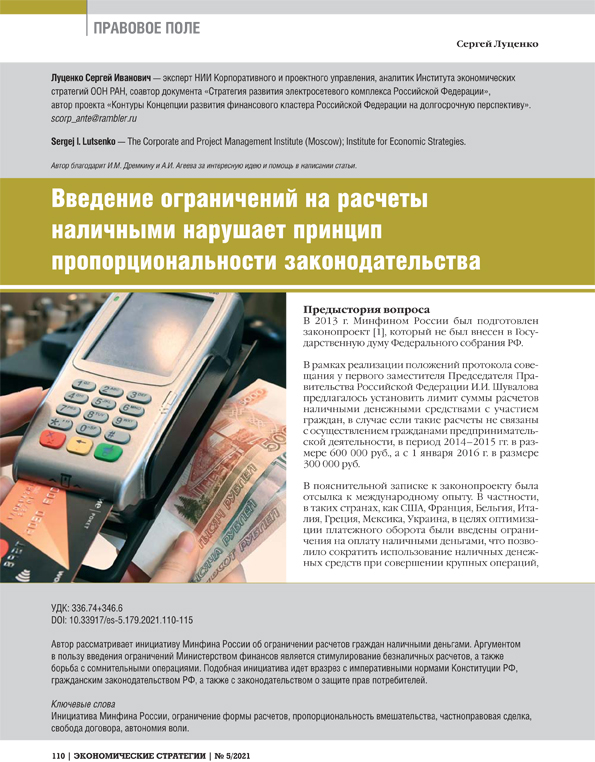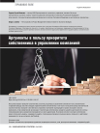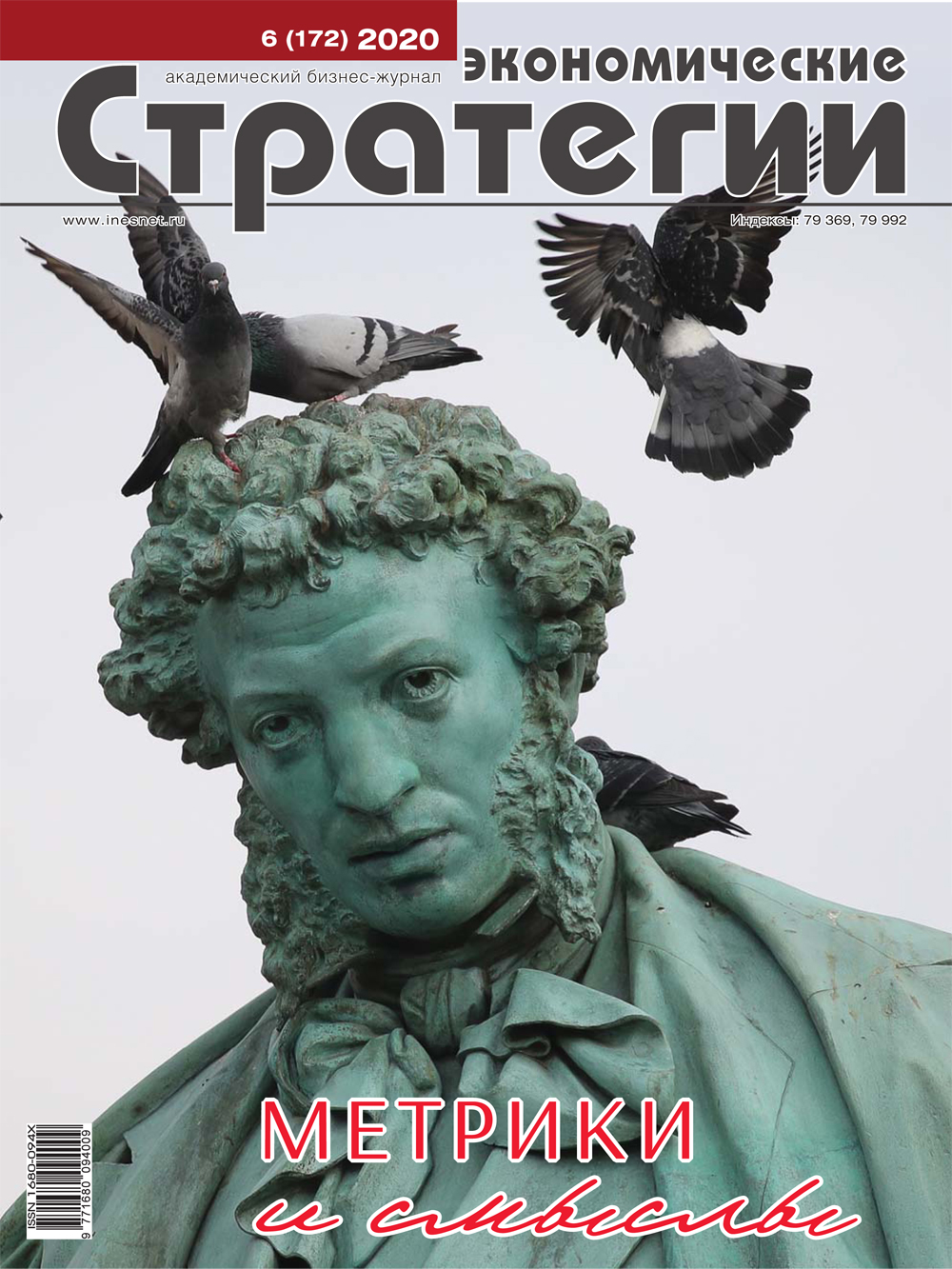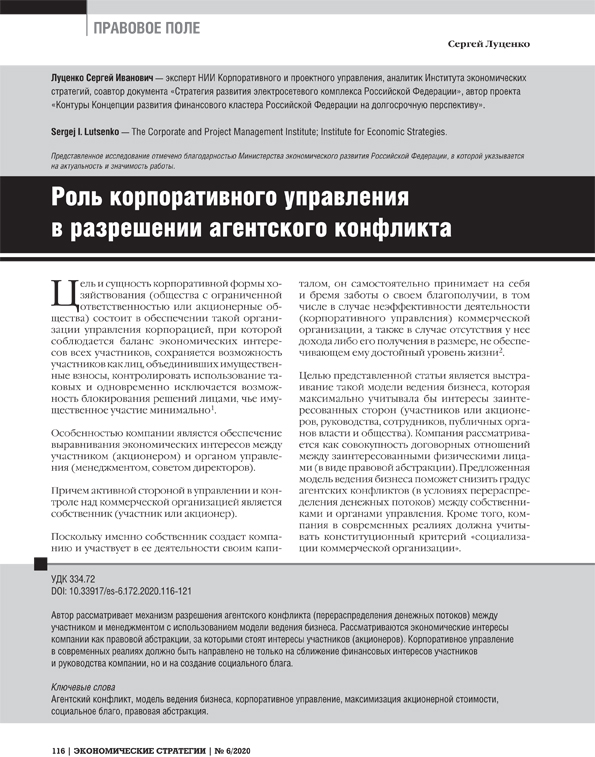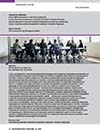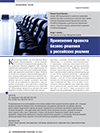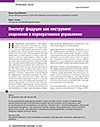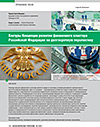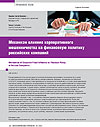Rating does not Detract from the Company’s Business Reputation
DOI: 10.33917/es-5.191.2023.120-125
The article examines legal features and consequences of compiling a rating of companies. The situation may arise when a company, included in the rating, is dissatisfied with its position. The business entity believes that it was ranked lower than its competitor, which understates the professional results achieved by the company. In this case, the company may initiate legal proceedings declaring that information in the rating is untrue and discredits its business reputation. The author argues that ratings are an expression of subjective opinion of their compilers and must not impair business reputation.
References:
1. Lopatnikov L.I. Ekonomiko-matematicheskii slovar’: slovar’ sovremennoi ekonomicheskoi nauki [Economic-mathematical Dictionary: Dictionary of Modern Economic Science]. Moscow, Delo, 2003, 488 p.
2. Postanovlenie Vosemnadtsatogo arbitrazhnogo apellyatsionnogo suda ot 8 oktyabrya 2009 g. po delu N A76-2371/2009 [Resolution of the Eighteenth Arbitration Court of Appeal dated October 8, 2009 in case No. A76-2371/2009]. Access from the Consultant Plus ATP.
3. Postanovlenie Devyatogo arbitrazhnogo apellyatsionnogo suda ot 14 sentyabrya 2011 g. po delu N A40-37334/11-27-323 [Resolution of the Ninth Arbitration Court of Appeal dated September 14, 2011 in case No. A40-37334/11-27-323]. Access from the Consultant Plus ATP.
4. Grazhdanskii kodeks Rossiiskoi Federatsii (chast’ pervaya) ot 30 noyabrya 1994 g. N 51-FZ [Civil Code of the Russian Federation (Part One) No. 51-FZ of November 30, 1994]. Sobranie zakonodatel’stva RF, 1994, no 32.
5. Opredelenie Vysshego arbitrazhnogo suda RF ot 15 dekabrya 2008 g. N 16321/08 [Determination of the Supreme Arbitration Court of the Russian Federation dated December 15, 2008 No. 16321/08]. Access from the Consultant Plus ATP.
6. Postanovlenie Evropeiskogo suda po pravam cheloveka ot 8 iyulya 1986 g. po delu “Lingens protiv Avstrii” (zhaloba N 9815/82) [Judgment of the European Court of Human Rights of 8 July 1986 in the case of Lingens v. Austria (application no. 9815/82)]. Access from the Consultant Plus ATP.
7. Postanovlenie Evropeiskogo suda po pravam cheloveka ot 21 iyulya 2005 g. po delu “Grinberg protiv Rossiiskoi Federatsii” (zhaloba N 23472/03) [Judgment of the European Court of Human Rights of July 21, 2005 in the case “Grinberg v. Russian Federation” (complaint No. 23472/03)]. Access from the Consultant Plus ATP.
8. Obzor praktiki rassmotreniya sudami del po sporam o zashchite chesti, dostoinstva i delovoi reputatsii (utv. Prezidiumom Verkhovnogo suda RF 16 marta 2016 g.) [Review of the Practice of Courts Considering Cases on Disputes Regarding the Protection of Honor, Dignity and Business reputation (approved by the Presidium of the Supreme Court of the Russian Federation on March 16, 2016)]. Byulleten’ Verkhovnogo suda RF, 2016, no 10.
9. Postanovlenie Plenuma Verkhovnogo suda RF ot 24 fevralya 2005 g. N 3 “O sudebnoi praktike po delam o zashchite chesti i dostoinstva grazhdan, a takzhe delovoi reputatsii grazhdan i yuridicheskikh lits” [Resolution of the Plenum of the Supreme Court of the Russian Federation dated February 24, 2005 No. 3 “On judicial practice in cases of protecting the honor and dignity of citizens, as well as the business reputation of citizens and legal entities”]. Byulleten’ Verkhovnogo suda RF, 2005, no 4.





